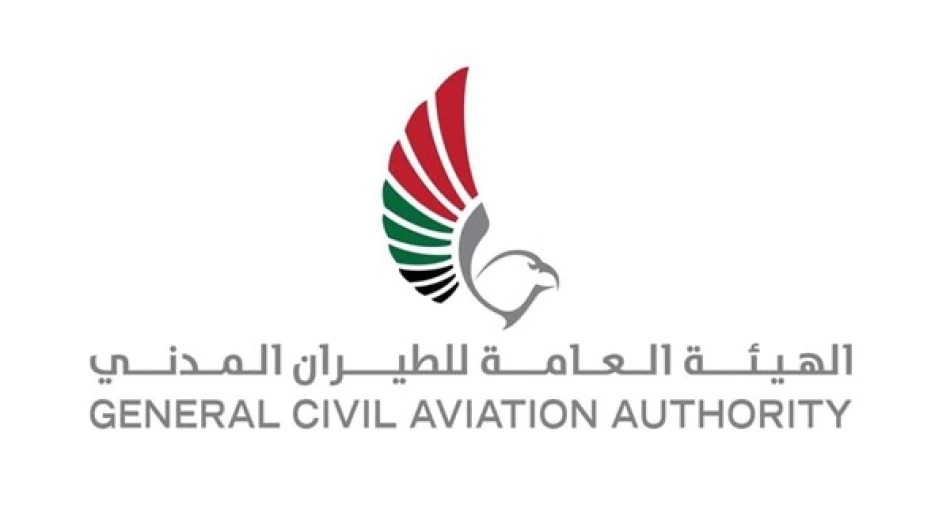
Civil Aviation Authority Releases New Crisis Management Guidelines for Airports
UAE Aviation Authority Launches World-Class Airport Crisis Management Framework
The UAE's General Civil Aviation Authority has introduced comprehensive crisis management regulations that could set a new global standard for airport resilience. The new framework moves beyond traditional reactive approaches to establish performance-based crisis preparedness protocols, potentially positioning the Emirates as a blueprint for aviation hubs worldwide facing increasingly complex operational challenges.
Strategic Shift from Reactive to Proactive Crisis Management
The newly issued Civil Aviation Regulation for Airport Crisis Management (CAR-Airport Crisis Management) represents a fundamental departure from conventional emergency response models. Rather than simply reacting to disruptions, the regulation establishes an integrated, anticipatory framework designed to enhance safety, business continuity, and operational excellence across UAE airports.
Saif Mohammed Al Suwaidi, Director General of the General Civil Aviation Authority, emphasized that the regulation strengthens the aviation sector's ability to meet business continuity requirements while organizing operations according to international best practices. "This regulation reflects the country's commitment to innovation and future planning, ensuring our airports are ready not just to handle crises, but to emerge from them stronger and more integrated," Al Suwaidi stated.
Comprehensive Crisis Preparedness Requirements
Multi-Layered Operational Framework
The regulation mandates airports to develop comprehensive crisis management plans that address complex and evolving challenges, from global health pandemics to natural disasters. Key requirements include coordinated response protocols between relevant authorities, continuous training programs, and integration of risk-based decision-making mechanisms into daily operations.
Engineer Aqeel Al Zarouni, Assistant Director General for Aviation Safety Affairs, noted that the regulation was developed through extensive consultations with airport operators and sector stakeholders. This collaborative approach enabled the creation of a practical regulatory framework that can be effectively implemented on the ground.
Global Benchmark Potential
The timing of this regulatory development is particularly significant given the aviation industry's recent experiences with unprecedented disruptions. The COVID-19 pandemic exposed critical gaps in airport crisis management capabilities worldwide, leading to billions in losses and operational chaos across major aviation hubs.
Unlike many international frameworks that focus primarily on security threats or weather-related disruptions, the UAE's approach addresses the full spectrum of potential crises through an integrated lens that considers operational, financial, and reputational impacts.
Strategic Positioning in Global Aviation Competition
Regional Leadership Implications
This regulatory advancement reinforces the UAE's strategy to maintain its position as a leading global aviation hub amid intensifying regional competition. With Dubai International and Abu Dhabi International airports serving as critical transit points between Europe, Asia, and Africa, operational resilience has become a key competitive differentiator.
The regulation's emphasis on institutional flexibility and coordinated response capabilities could prove crucial as the UAE's aviation sector continues expanding. Emirates and Etihad Airways, along with other carriers using UAE airports as hubs, stand to benefit from enhanced operational predictability and reduced disruption-related costs.
International Regulatory Influence
The UAE's proactive approach may influence regulatory developments in other major aviation markets. Singapore's Changi Airport and Hong Kong International Airport have implemented similar comprehensive crisis management systems, but the UAE's integration of performance-based metrics with traditional emergency protocols represents an evolution in regulatory thinking.
International airport operators and regulatory bodies are likely to study the UAE framework's implementation, particularly its risk-based decision-making components and stakeholder coordination mechanisms. Success in this initiative could position the UAE as a regulatory thought leader in aviation crisis management, extending its influence beyond operational excellence to policy development.
Long-term Industry Impact
The regulation's emphasis on emerging stronger from crises rather than merely surviving them reflects a mature understanding of modern aviation challenges. As climate change increases the frequency of extreme weather events and geopolitical tensions continue affecting air travel patterns, airports with robust crisis management capabilities will likely capture greater market share and investor confidence.
For the broader aviation industry, the UAE's systematic approach to crisis preparedness may accelerate the adoption of similar frameworks globally, potentially reducing the sector's vulnerability to large-scale disruptions and improving overall passenger confidence in air travel reliability.
Most Viewed News

 Layla Al Mansoori
Layla Al Mansoori






